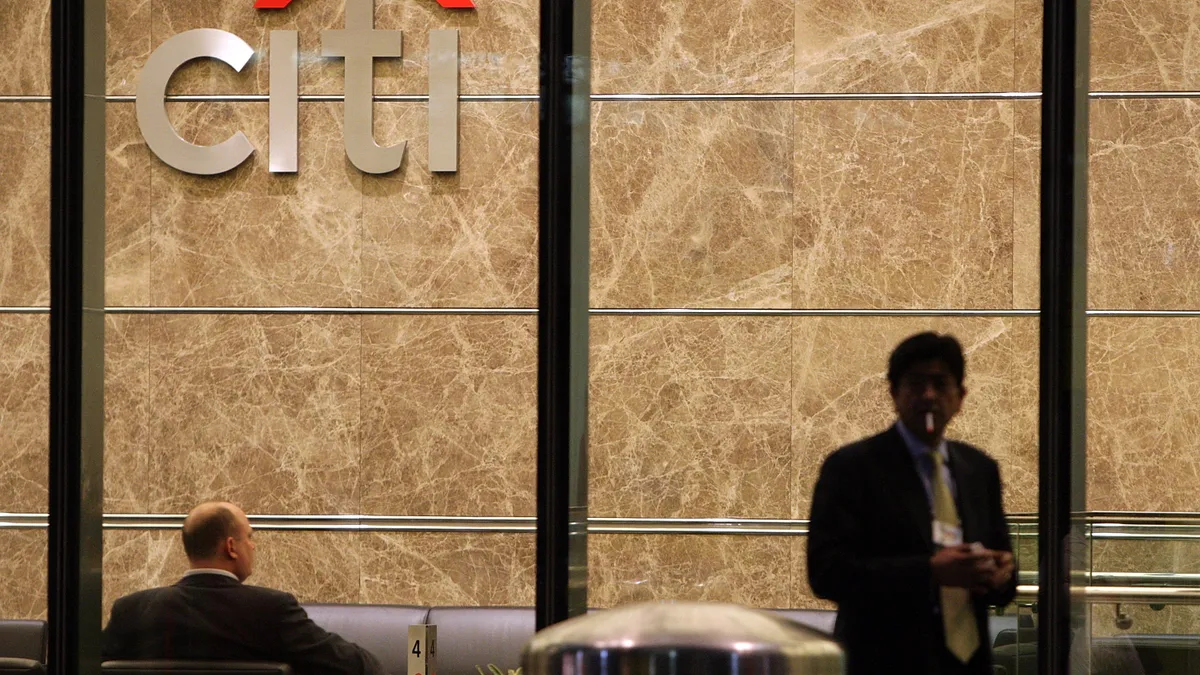U.S. regulators have demanded urgent changes from Citi regarding how it calculates default risk for trading partners. Additionally, the bank’s own auditors found issues with a proposal to improve internal oversight, Reuters reported Monday.
The Federal Reserve issued three notices late last year concerning matters requiring immediate attention, the wire service reported. The three MRIAs have deadlines ranging from six months to a year with directions for Citi to improve its data and governance around how it sets aside capital to account for counterparty credit risks, a source with direct knowledge of the matter told the outlet.
Typically, these requests are about shortcomings the banks have and a lender can have multiple MRIAs at the same time. But these rarely become public, Reuters noted.
In a separate incident, Citi’s internal audit unit stated that more work was necessary in at least one case to fix issues previously raised by regulators in consent orders issued in October 2020, according to an email seen by the outlet.
The email also said that in December, the internal audit team determined that some of the efforts to improve risk management across the bank were insufficient. Additionally, the audit unit found Citi had failed to meet a requirement to have procedures ensuring the board and senior management receive comprehensive reports on risks across the company, according to the email.
The Office of the Comptroller of the Currency also conducted investigations in September and October to review Citi’s progress on data integrity was as it claimed — a test the New York City-based lender failed, thereby forcing it to do more work, a source familiar with the matter said.
The new details revolving around the regulatory notices bring to light the complexity of the task CEO Jane Fraser holds as Citi carries out a sweeping overhaul aimed at simplifying operations and overlaps to rein in costs. The lender has been selling businesses and cutting its workforce, and it expects to incur as much as $1 billion in severance and restructuring costs this year.
Citi reported a $1.8 billion loss as a series of charges and reserves totaling $3.8 billion hit the bank’s profit, the lender said in its fourth-quarter earnings report.
In October 2020, the OCC fined Citi $400 million for persistent issues in risk management, data governance and internal controls, and ordered the bank to seek the regulator’s approval before making any “significant new acquisitions."
The Fed issued a cease-and-desist order against Citi in 2020, demanding the bank “correct practices previously identified by the Board in the areas of compliance risk management, data quality management and internal controls.” Around the same time, the OCC issued a similar cease-and-desist order against Citi.
The enforcement actions followed Citi’s errant transmission of $900 million in August 2020 to creditors of cosmetics firm Revlon.
One of the sources told Reuters that after revising it a few times, the lender has set July 31, 2024, as the date to clear the audit.
Citi said meeting its regulators' expectations is a top priority, and it is "making steady progress simplifying and modernizing our bank,” according to a statement seen by Reuters.
"Like any multiyear effort of this scale, progress isn’t linear and there are important learnings along the way that we’re incorporating into our efforts, including in the areas of regulatory reporting, infrastructure and data enhancement,” the bank told the publication.














